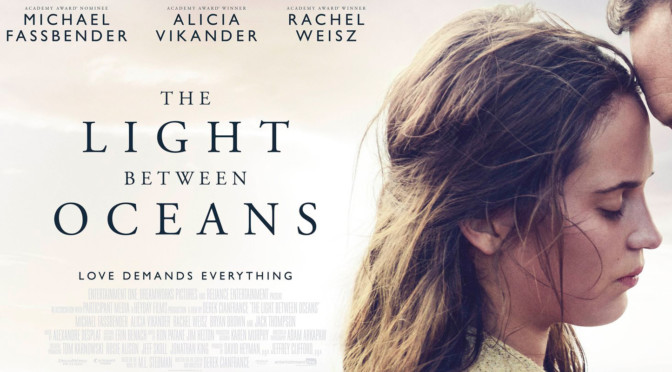Based on a best-selling novel, Earthquake Bird is the story of a translator living in Japan and the series of relationships she forms. Lucy Fly (Alicia Vikander; The Light Between Oceans) is a Swedish woman who translates English films that begins a romance with Teiji (Naoki Kobayashi; Tatara Samurai) after he takes a photo of her walking by. Their relationship progresses naturally, but is changed when Lucy is asked to help an American that has recently moved to Tokyo, Lily (Riley Keough; Mad Max: Fury Road). Lily begins to tag along on their outings leading to jealousy and potentially worse when Lily goes missing.
Foreign films set in Japan often focus on its eccentricities, but director Wash Westmoreland (Colette) is interested in the escape it provides. Lucy and Lily talk about how, as foreigners, they receive extra attention that can be addicting in comparison with their home countries. With Lucy we see that she views Japan as a sanctuary. A place where no one knows her and, since the film is set in the 80s, a place where she can remain cutoff if she wants to. Lily approaches Japan from a similar angle. She wants a fresh start in a place with different customs, different rules, and hopefully a different life. This view of life as a migrant is a unique portrayal of Japan and sheds light on Lucy and Lily’s personalities.

Vikander is excellent as the reserved Lucy Fly. Lucy is a victim of trauma and has faced personal tragedy that she blames herself for and has led a restricted life. She left her homeland to distance herself from her past, but also uses the enormity of Tokyo to distance herself from others. She is emotionally closed-off and reluctant to form new bonds which Vikander conveys through subtle hesitation and controlled expressions. She rarely emotes and it serves to show afraid she is to reveal herself, even if it is just a simple smile. This makes her strange courtship with Teiji, which begins with an awkward ramen meal, uncommon because she rarely expresses herself in the time they spend together. Instead, we see longing form in her eyes and witness her insecurities grow as she develops feelings for him. Lucy is not a typical protagonist, but Vikander’s nuanced performance makes her a compelling one.
Despite the strength of the lead actress, the film struggles to create its mystery. Westmoreland uses the same cold exterior that Lucy displays for the tone of the film to limited success. The plot progression is slow and there is a noticeable emptiness to the film. Even the busy streets of Tokyo often seem sparsely populated and it gives the impression that the direction is missing some much needed energy. Lily, as the more outgoing American, initially appears like she will be this spark, but even her role is muted. Keough gives a much more carefree performance that contrasts well with Vikander but she is still fairly subdued. Even in the film’s climactic moments, it does not break its placid exterior. The lack of energy behind Earthquake Bird’s central mystery makes it a mostly subdued thriller and weakens the impact of the intriguing love-triangle and Vikander’s refined performance.

3/5 stars.





